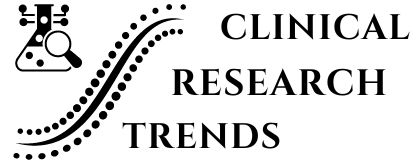The Use of Artificial Intelligence in Drug Development
The journey of drug development, from discovery to market, is a complex and lengthy process. Traditionally, it involves several stages: identifying a disease target, discovering potential drug candidates, preclinical testing, clinical trials, and finally, regulatory approval. This process can take over a decade and cost billions of dollars, with a high failure rate at various stages. The challenges in drug development are compounded by the need for precise targeting, safety, efficacy, and patient-specific responses.
In recent years, the advent of Artificial Intelligence (AI) has brought a transformative change to many industries, including healthcare. AI, with its capacity to analyze vast amounts of data and generate predictive models, is revolutionizing drug development. From accelerating target identification to optimizing clinical trials and monitoring post-market drug safety, AI is reshaping the pharmaceutical landscape. This blog explores the pivotal role of AI in various stages of drug development, highlighting its applications, benefits, and the challenges it presents.
Target Identification and Validation
Data Mining and Analysis
One of the initial and crucial steps in drug development is the identification of biological targets, such as proteins or genes, that play a key role in disease processes. Traditional methods rely heavily on labor-intensive and time-consuming experimental approaches. However, AI, particularly machine learning algorithms, offers a powerful alternative by efficiently mining biological data. These algorithms can sift through enormous datasets, including genomic, transcriptomic, and proteomic data, to identify potential targets.
AI systems can analyze patterns in data that might be imperceptible to humans, such as subtle genetic variations associated with diseases. By utilizing supervised learning models, researchers can train AI systems on known disease-related genes and proteins, enabling the identification of new targets. This capability not only speeds up the target discovery process but also enhances its accuracy, reducing the likelihood of pursuing ineffective targets.
Genomics and Proteomics
The integration of AI in genomics and proteomics has further advanced the understanding of complex biological systems. AI algorithms, particularly deep learning, can process high-dimensional data from genomic and proteomic studies to predict disease-associated genes and proteins. For instance, AI models can analyze single-cell RNA sequencing data to identify gene expression patterns that are characteristic of specific diseases.
Moreover, AI tools can predict the functional implications of genetic mutations, helping to prioritize those with the highest potential for drug targeting. By leveraging machine learning, researchers can also integrate data from different omics layers, such as genomics and proteomics, to gain a more comprehensive view of disease mechanisms. This holistic approach enables the identification of biomarkers for disease diagnosis, prognosis, and treatment response, paving the way for more personalized medicine.
Drug Discovery and Design
Virtual Screening and Molecular Docking
The traditional drug discovery process involves the screening of vast libraries of chemical compounds to find those that interact with the biological target of interest. This process, often done through high-throughput screening, is resource-intensive and time-consuming. AI, particularly through virtual screening, has revolutionized this phase by significantly enhancing efficiency and accuracy.
Virtual screening involves using AI algorithms to model the interactions between compounds and the biological target. These models can predict the binding affinity of compounds, enabling researchers to prioritize those with the highest potential for therapeutic effect. Molecular docking, a computational technique used to predict how a drug molecule fits into a target's binding site, is also enhanced by AI. By incorporating machine learning algorithms, molecular docking predictions can become more accurate, accounting for the flexibility of both the drug and the target.
De Novo Drug Design
Beyond screening existing compounds, AI has opened new avenues in drug discovery through de novo drug design. Generative models, such as variational autoencoders and generative adversarial networks, can design novel drug candidates from scratch. These models learn the underlying rules of chemical structures and generate new compounds that are predicted to have desirable properties, such as high binding affinity and low toxicity.
The success stories of AI in de novo drug design are becoming increasingly prominent. For example, Insilico Medicine used AI to design a novel drug candidate for fibrosis in just 46 days, a process that traditionally takes years. These AI-designed compounds can then be synthesized and tested in vitro and in vivo, significantly shortening the drug discovery timeline.
Preclinical Testing
Predictive Toxicology
A critical aspect of drug development is ensuring the safety of new drug candidates. Traditionally, this involves extensive preclinical testing in animal models to assess potential toxicity. However, this approach has limitations, including ethical concerns, high costs, and differences between animal and human responses. AI offers a promising alternative through predictive toxicology.
Predictive toxicology involves using AI models to predict the toxicological profile of compounds based on their chemical structure and biological data. Machine learning algorithms can analyze data from previous toxicological studies to identify patterns and predict the toxicity of new compounds. This approach not only reduces the reliance on animal testing but also improves the prediction of human-specific toxicities. AI models can also identify biomarkers associated with toxicity, enabling early detection of adverse effects.
Pharmacokinetics and Pharmacodynamics (PK/PD) Modeling
Understanding how a drug behaves in the body (pharmacokinetics) and its biological effects (pharmacodynamics) is crucial for determining appropriate dosing and efficacy. AI can significantly enhance PK/PD modeling by analyzing complex datasets and generating predictive models. These models can simulate drug absorption, distribution, metabolism, and excretion, providing insights into optimal dosing regimens and potential drug interactions.
AI-driven PK/PD models can also account for patient-specific factors, such as genetic variations, that influence drug response. This personalized approach helps in predicting the efficacy and safety of a drug in different patient populations, leading to more precise and effective therapies.
Clinical Trial Optimization
Patient Recruitment and Stratification
Clinical trials are a critical phase in drug development, but they are also time-consuming and expensive. A major challenge in clinical trials is patient recruitment, which often faces delays due to stringent eligibility criteria and limited patient pools. AI can streamline this process by analyzing electronic health records (EHRs) and other data sources to identify suitable trial participants.
AI algorithms can sift through patient data to find individuals who meet the specific inclusion and exclusion criteria of a trial. This targeted approach not only accelerates recruitment but also enhances the diversity and representation of the study population. Furthermore, AI can assist in patient stratification, dividing participants into subgroups based on factors like genetic makeup, disease severity, or previous treatment responses. This stratification enables more tailored trial designs and can lead to more accurate assessments of a drug's efficacy and safety.
Real-Time Monitoring and Adaptive Trials
AI's role extends beyond recruitment and stratification to the real-time monitoring of clinical trials. By analyzing data as it is collected, AI can provide insights into the trial's progress and identify any emerging safety issues. This capability is particularly valuable in adaptive trial designs, where the trial protocol can be modified based on interim results.
Adaptive trials allow for more efficient use of resources and faster decision-making. For example, if a particular dose or patient subgroup shows promising results, the trial can be adjusted to focus on those aspects. Conversely, if safety concerns arise, the trial can be paused or modified to address them. AI's ability to process and analyze data in real time facilitates these adaptive changes, potentially speeding up the trial process and reducing costs.
Post-Marketing Surveillance
Pharmacovigilance
Even after a drug reaches the market, ongoing monitoring of its safety and efficacy is crucial. This process, known as pharmacovigilance, involves detecting, assessing, and preventing adverse drug reactions (ADRs). AI has become an invaluable tool in pharmacovigilance, automating the detection and reporting of ADRs from various data sources, including EHRs, social media, and patient registries.
Natural language processing (NLP) algorithms can analyze unstructured data, such as clinical notes or social media posts, to identify mentions of ADRs. Machine learning models can then classify these reports and determine their relevance and severity. By automating these processes, AI not only increases the speed and efficiency of pharmacovigilance but also improves the accuracy of ADR detection, helping to ensure patient safety.
Real-World Evidence and Market Analysis
Beyond monitoring adverse effects, AI can analyze real-world data to gather evidence on a drug's performance post-marketing. Real-world evidence (RWE) includes data on drug utilization, effectiveness, and long-term safety, gathered from sources like EHRs, claims databases, and patient surveys. AI can integrate and analyze this diverse data to provide insights into how a drug performs in everyday clinical practice.
RWE is increasingly important for regulatory decisions, reimbursement, and clinical guideline development. AI-driven analysis of RWE can identify new indications for existing drugs, highlight patient subgroups that benefit most, and uncover potential off-label uses. Additionally, AI can assist in market analysis, predicting trends in drug usage and identifying unmet medical needs, thereby informing future research and development strategies.
Challenges and Ethical Considerations
Data Privacy and Security
While AI offers numerous benefits in drug development, it also raises significant challenges, particularly concerning data privacy and security. The use of AI often requires access to large amounts of sensitive patient data, including genomic information and health records. Ensuring the privacy and security of this data is paramount, as breaches can have serious consequences for individuals and organizations.
To address these concerns, pharmaceutical companies and researchers must adhere to strict data protection regulations, such as the General Data Protection Regulation (GDPR) in Europe or the Health Insurance Portability and Accountability Act (HIPAA) in the United States. They must also implement robust cybersecurity measures to protect against data breaches and unauthorized access. Moreover, transparency in data usage and obtaining informed consent from patients are essential to maintaining public trust.
Ethical AI Use in Drug Development
Another critical consideration is the ethical use of AI in drug development. AI algorithms can inadvertently perpetuate biases present in the data they are trained on, leading to unequal treatment or misrepresentation of certain patient groups. For example, if a dataset predominantly includes data from a specific demographic, the AI model may not perform well for other populations, resulting in disparities in drug efficacy or safety assessments.
To mitigate these risks, it is essential to use diverse and representative datasets and to regularly audit AI systems for bias. Additionally, transparency in the development and deployment of AI algorithms is crucial. This includes clearly documenting how models are trained, validated, and applied, as well as ensuring accountability for decisions made by AI systems.
Future Prospects and Conclusion
Emerging Trends and Innovations
The field of AI in drug development is rapidly evolving, with new trends and innovations continually emerging. One promising area is the use of AI in personalized medicine, where treatments are tailored to the genetic and molecular profile of individual patients. AI can help identify biomarkers for disease subtypes and predict individual responses to drugs, leading to more precise and effective therapies.
Another emerging trend is the integration of AI with other advanced technologies, such as quantum computing and blockchain. Quantum computing has the potential to exponentially increase the speed and complexity of AI algorithms, while blockchain can enhance data security and transparency. The convergence of these technologies could further accelerate drug development and improve the quality of healthcare.
Notable Labs: Revolutionizing Drug Development with AI
In the complex and lengthy process of drug development, the role of Artificial Intelligence (AI) has become increasingly vital. From accelerating the identification of disease targets to optimizing clinical trials and monitoring post-market safety, AI is transforming the pharmaceutical landscape. Notable Labs stands at the forefront of this revolution, leveraging AI to enhance every stage of drug development. By utilizing advanced machine learning algorithms, Notable Labs efficiently mines biological data, identifies potential drug targets, and even designs novel drug candidates from scratch. Their AI-driven approaches not only shorten development timelines and reduce costs but also lead to more personalized and effective treatments. As AI continues to evolve, Notable Labs is poised to deliver groundbreaking solutions that address some of the most pressing health challenges of our time, bringing new hope and healing to patients worldwide.
Conclusion
The integration of AI into drug development represents a paradigm shift in the pharmaceutical industry. By enhancing the efficiency and accuracy of target identification, drug discovery, preclinical testing, clinical trials, and post-marketing surveillance, AI has the potential to significantly shorten development timelines and reduce costs. Moreover, AI-driven insights can lead to more personalized and effective treatments, ultimately improving patient outcomes.
However, the widespread adoption of AI in drug development also brings challenges, particularly regarding data privacy, security, and ethical considerations. Addressing these challenges is crucial to realizing the full potential of AI and ensuring its responsible use. As the field continues to evolve, ongoing collaboration between AI experts, healthcare professionals, regulators, and patients will be essential to navigate these complexities and harness the benefits of AI for the betterment of healthcare.
In conclusion, the transformative impact of AI on drug development is undeniable. As technology advances and our understanding of AI deepens, the pharmaceutical industry stands poised to deliver innovative treatments that address some of the most pressing health challenges of our time. The journey is just beginning, and the possibilities are vast, promising a future where AI-driven drug development brings new hope and healing to patients worldwide.










